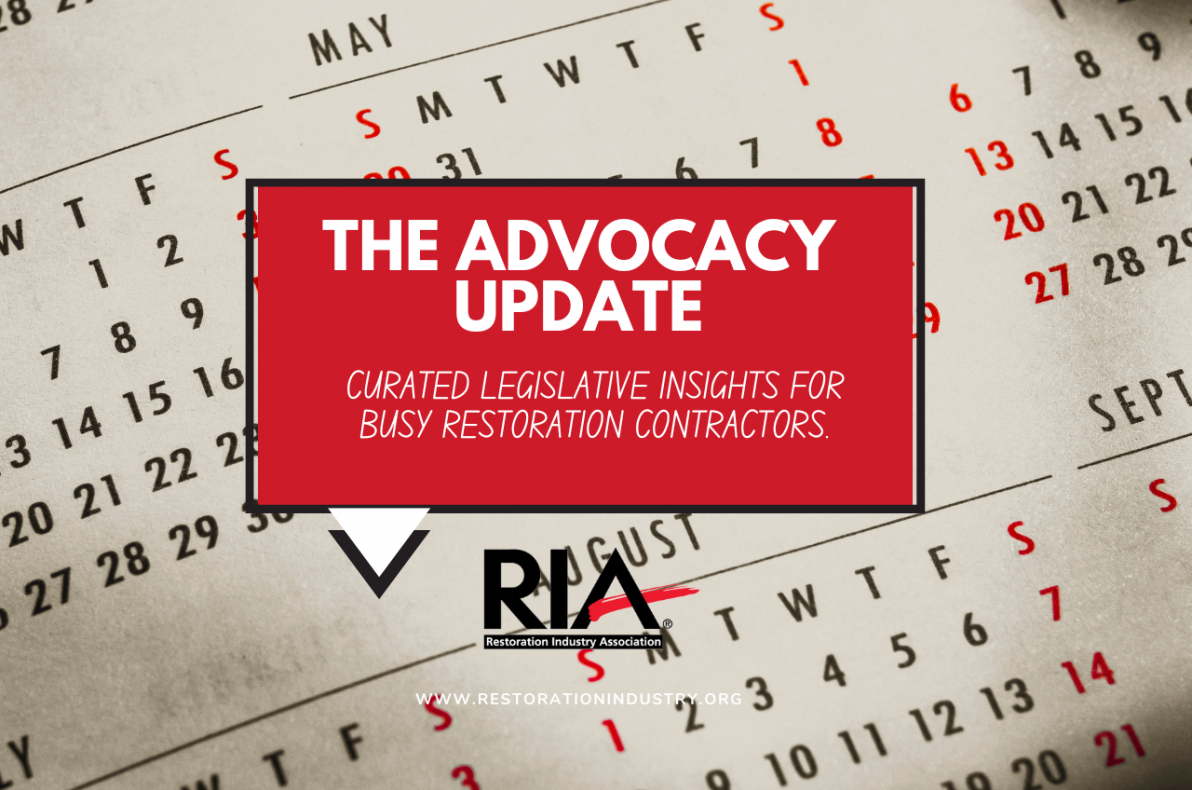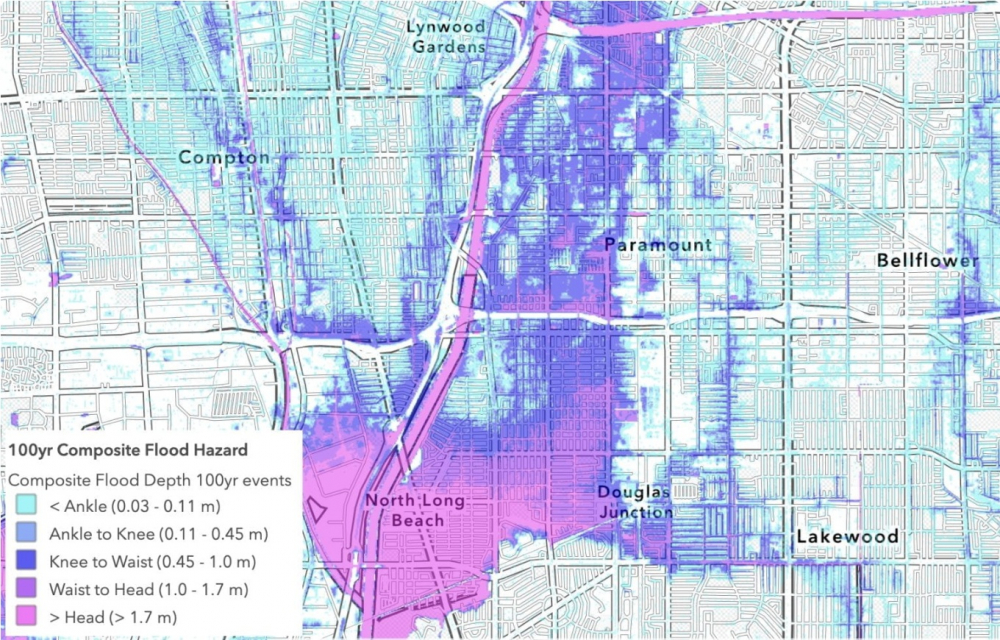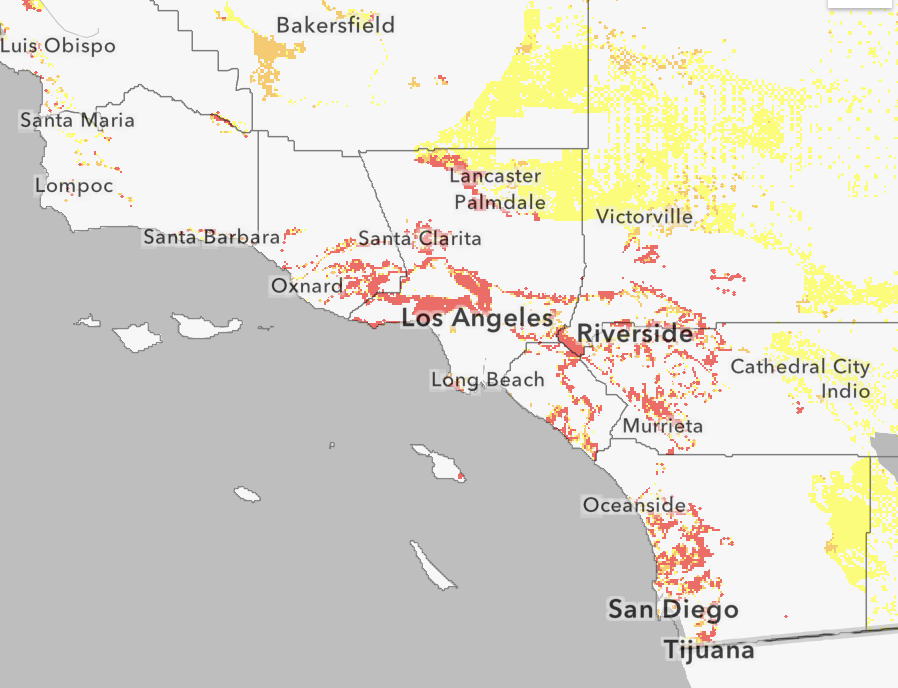The Advocacy Update: July 16, 2025

Stay informed without the overwhelm. The Advocacy Update delivers clear, curated legislative updates restoration contractors can trust, highlighting the bills, policies, and issues that matter most to your business. Each week, get a quick, actionable overview to keep you prepared and ahead in a rapidly changing landscape.
As state sessions around the country adjourn for the year, legislative policymaking has been relatively quiet, with only 8 states remaining in legislative session. Since the three bills highlighted originated from California, here is a deep dive into natural disaster concerns in California, namely flooding and wildfires.
The Federal Emergency Management Agency, or FEMA, explains that floods are “unpredictable.” Fortunately, flood maps show how likely it is for an area to flood, with any place with a 1% chance or higher of experiencing a flood each year being considered to have a high risk. Investigating the chance of floods in Los Angeles, researchers at the University of California, Irvine, in 2022 utilized urban flood modeling to demonstrate the areas with the highest risk of flooding from excessive rainfall.

Wildfires, on the other hand, continue to devastate California. Similar to flood maps, fire hazard maps, and seventy zones are developed through models that factor in fire likelihood and fire behavior. Specifically, this includes fire history, existing and potential fuel (such as natural vegetation), predicted flame length, blowing embers, terrain, and typical fire weather for the area. The California State Fire Marshal categorizes fire hazards into three severity zones: moderate (as indicated in yellow), high (as indicated in orange), and very high (as indicated in red).

General Contracting
California SB 517 seeks to expand transparency and accountability relating to subcontractors. First, this bill specifies that the prime or direct contractor is responsible for the completion of a project in accordance with the signed home improvement contract, plan, or specification, and is subject to administrative discipline for failure to comply. However, this bill clarifies that while administrative responsibility rests with the prime or direct contractor, subcontractors or home improvement salespersons are not precluded from administrative discipline for violations. Furthermore, this bill would require home improvement contracts to contain a disclosure regarding whether or not subcontractors will be used for the project. This bill has passed the Senate, and PolicyNote (our legislative software) predicts this bill has a high chance of passing the Assembly. If enacted, this bill will require more transparency for subcontractors while simultaneously asserting project completion responsibility on the primary contractor. When introduced, this bill also included a provision that would require the name and contact information of subcontractors to be listed in the contract if they would be performing more than 50% of the total estimated project cost, but this has since been removed.
Restorers Rights
Two bills related to Contracting progressed this week in California.
➢ AB 1327, a bill highlighted last week, continues to progress in the Senate as it progresses to a second floor reading. This bill provides additional cancellation rights for consumers, requiring that notices of cancellation, in addition to being included in home improvement or home solicitation contracts or offers, also be delivered via email and that the consumer be provided with a phone number to contact for assistance in locating and filling out notices of cancellation. Additionally, this bill enables consumers to file a complaint with the Contractors State Licensing Board (CSLB) if a notice of cancellation is not included in a home improvement contract. This bill has passed the Assembly, and PolicyNote predicts it will pass the Senate as well. If enacted, this bill would require contractors, including restoration contractors, to be more forthcoming with contract cancellation options and resources.
➢ AB 559 clarifies contracting language by defining “home improvement” as all construction, erection, installation, replacement, or improvement of accessory dwelling units on residentially zoned property. Under current state law, all home improvement cases are prohibited from down payments exceeding the lesser of $1,000 or 10% of the contract value; contractors are further prohibited from requesting or accepting payment that exceeds the value of work performed or material delivered. While failure to comply with these down payment and payment prohibitions is a misdemeanor punishable by a fine of between $100-$5,000 or one year of imprisonment, this bill would increase the punishment for violations to revocation of licensure and a civil penalty of at least $10,000, or if the person is unlicensed, a citation and a civil penalty of at least $10,000. This bill has passed the Assembly, and PolicyNote (our legislative software) predicts it has a high chance of passing the Senate. If enacted, this bill would clarify home improvement contract language and increase penalties against violators of state down payment and payment prohibitions.
Stay Connected & Support Advocacy
Follow us on social media to stay engaged with the latest updates and advocacy wins. Ready to get involved or support the mission? Email info@restorationindustry.org to learn how you can participate and support the RIA's advocacy efforts.
These weekly updates are part of RIA’s mission to educate, advocate, and elevate the restoration industry—empowering contractors to navigate legislative challenges and shape a stronger future for all.
